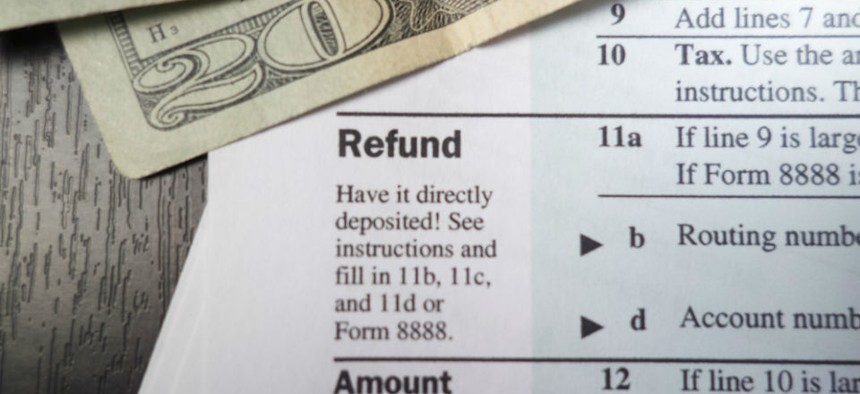
Derek Hatfield/Shutterstock.com
IRS Still Struggles With Identify Theft
False tax returns said to drain $5.2 billion from the Treasury.
Tax fraud committed by identity thieves cost the government $5.2 billion in 2013, according to a Government Accountability Office report released on the heels of a hard-hitting “60 Minutes” segment on the problem.
Though the CBS feature was harsher in tone, the auditors’ report—the first in a coming series—gave the Internal Revenue Service credit for preventing $24 billion in unmerited tax refunds. But GAO said the tax agency’s estimate of $5.2 billion in tax fraud by identity thieves is incomplete because it is “based on duplicate returns, information return mismatches, and criminal investigations identified after the refunds are paid. However, for cases where there are no duplicate returns, information returns, or criminal investigations associated with a tax return, IRS has been unable to estimate the amount of [identity theft] refund fraud.”
Criminals, as dramatized on “60 Minutes” by U.S. attorneys, buy or steal hundreds of Social Security numbers and then file for multiple tax refunds on electronic devices in the name of another individual—before the actual taxpayer has filed. As many as 40 percent of the refund applications are approved by the IRS, one reformed perpetrator said.
The problem, GAO explained, stems from procedures under which the IRS conducts only selected reviews of refund applications, issuing many refunds quickly rather than waiting for all compliance checks. “While there are no simple solutions, one option is earlier matching of employer-reported wage information to taxpayers' returns before issuing refunds," GAO wrote. “IRS currently cannot do such matching because employers' wage data (from Form W-2s) are not available until months after IRS issues most refunds.”
Possible solutions involve accelerating employers’ deadlines for submitting W-2 wage summaries to the IRS, moving tax filing season up and allowing more employers to file W-2 forms electronically to better allow cross-checking of income claims with third parties.
The tax agency, however, has “not fully assessed the impacts” of accelerating deadlines, auditors said. “Without this assessment, Congress does not have the information needed to deliberate the merits of such a significant change to W-2 deadlines or the use of pre-refund W-2 matching,” GAO wrote. “Such an assessment is consistent with IRS' strategic plan that calls for analytics-based decisions, and would help IRS ensure effective use of resources.”
Allowing ever-smaller employers (those filing as few as five to 10 W-2 forms, as opposed to the current threshold of 250 and up) to file W-2’s electronically would save money, according to the Social Security Administration.
GAO recommended that Congress consider providing Treasury with authority to lower the annual threshold for electronic filing of W-2s, and that IRS provide a cost estimate on shifting W-2 deadlines.
IRS neither agreed nor disagreed with GAO's recommendations.
Internal Revenue Commissioner John Koskinen told Steve Kroft on “60 Minutes” that he hadn’t heard of the identity theft problem before signing on to lead the agency. “What happened was a lot of people discovered that Social Security numbers are either easy to steal or find or buy and then you can file a false return,” he said. The reason few anticipated the problem, he said, “goes back to the fact that people didn't anticipate Social Security numbers were going be so readily available. The assumption, until fairly recently, was [that Social Security numbers were] a part of your identity that you protected and took great care of so that no one actually expected they would be this easy to get ahold of.”
(Image via Derek Hatfield/Shutterstock.com)
NEXT STORY: Will the New Manager Be a Bully Too?







